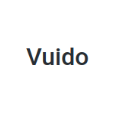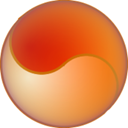Top azula Alternatives: Exploring Lightweight UI Frameworks
azula is an intriguing, lightweight alternative to Electron, built upon Ultralight for minimal memory footprint and disk space usage. Its ability to run in OSR mode makes it ideal for embedding in existing projects like Game/VR Engines. However, for various development needs, you might be looking for a robust azula alternative that offers different features, broader platform support, or a more familiar development ecosystem. This article explores some of the best alternatives to azula for building efficient and performant applications.
Top azula Alternatives
Whether you're prioritizing cross-platform compatibility, specific language support, or advanced GUI capabilities, there's an azula alternative out there for you. Let's dive into some of the top contenders.

Qt
Qt is a powerful and widely-used cross-platform application framework, making it a strong azula alternative for developing software that runs on various platforms including Mac, Windows, Linux, and BSD. It offers a clean API, supports desktop and embedded device development, and enables native applications, making it suitable for complex projects.

Electron
Electron, while larger than azula, is a highly popular free and open-source framework that allows developers to build native desktop applications using familiar web technologies like JavaScript, HTML, and CSS. It supports Mac, Windows, and Linux, offering features like a robust build system, cross-platform compatibility, and excellent HTML5 and JavaScript support, making it a viable azula alternative if web tech integration is key.

GTK+
GTK+ is a free and open-source multi-platform toolkit for creating graphical user interfaces, offering a comprehensive set of widgets. It's an excellent azula alternative for projects ranging from small utilities to large-scale applications, supporting Mac, Windows, Linux, and Chrome OS, and is well-regarded for its cross-platform capabilities and developer tools.

React Native
While primarily for mobile, React Native is a free and open-source framework that extends to desktop platforms (Mac, Windows, Linux) for building native application experiences using JavaScript and React. It offers a consistent developer experience and features like Android development and performance monitoring, making it a consideration as an azula alternative for those already invested in the React ecosystem.

NW.js
NW.js (formerly node-webkit) is a free and open-source app runtime based on Chromium and Node.js, allowing you to write native applications in HTML and JavaScript. It supports Mac, Windows, and Linux, offering developer tools and web development features, making it a strong azula alternative for those who prefer web technologies for desktop app creation.

Ultimate++
Ultimate++, also known as U++, is a free and open-source C++ cross-platform rapid application development framework designed for programmer productivity. It includes a GUI builder, IDE, and RAD capabilities, supporting Windows, Linux, and BSD, and stands out as a robust azula alternative for C++ developers seeking a comprehensive development environment.

wxWidgets
wxWidgets is a free and open-source C++ library that enables developers to create applications for Windows, OS X, Linux, and UNIX. It provides a rich set of features and is often used with Python and Ruby, making it a versatile azula alternative for those who need a robust C++-based solution with broad platform support.

Vuido
Vuido is a free and open-source framework that combines the simplicity of Vue.js with the libui library to create lightweight, native desktop applications. It's a compelling azula alternative for Vue.js developers seeking cross-platform desktop development, supporting Mac, Windows, and Linux.

Proton Native
Proton Native offers a React environment for building native desktop applications, much like React Native for mobile. This free and open-source framework supports Mac, Windows, and Linux, making it an appealing azula alternative for React developers looking to create cross-platform desktop experiences with a familiar component-based approach.

Sciter
Sciter allows you to build cross-platform desktop applications using HTML and CSS, providing a stack of GPU-accelerated web technologies for UI development. As a Freemium azula alternative, it offers a lightweight solution for desktop apps on Mac, Windows, and Linux, with strong scripting capabilities.
Choosing the right azula alternative depends heavily on your project's specific requirements, your team's existing skill set, and your performance priorities. Each option listed above offers unique advantages, from deep integration with web technologies to powerful native C++ development. Explore these alternatives to find the best fit for your next application.